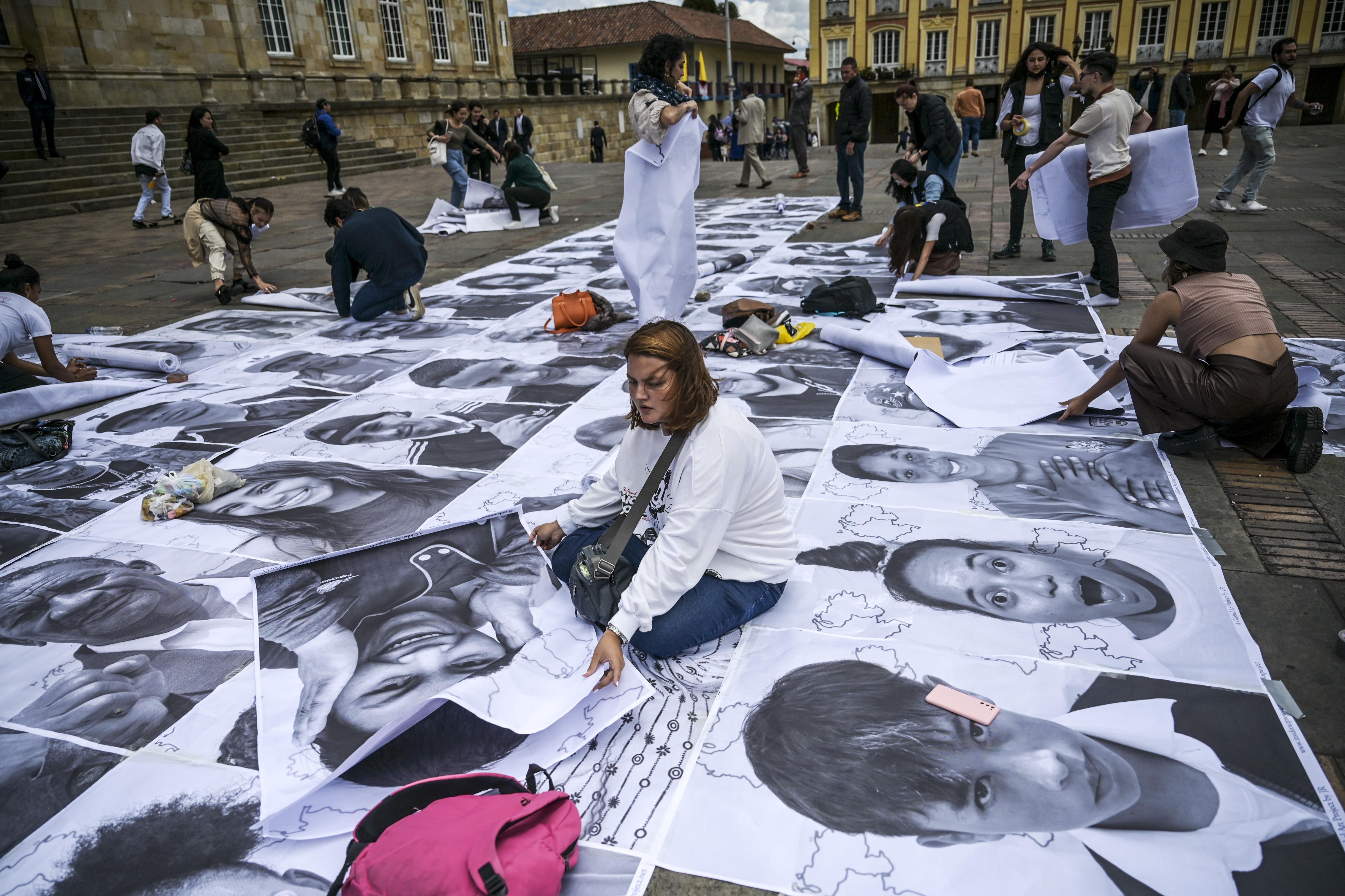 People place portraits of refugees and returnees on the ground during an activity carried out by the Inside Out art project in the framework of World Refugee Day in Bogota on June 21, 2023. (PHOTO / AFP)
People place portraits of refugees and returnees on the ground during an activity carried out by the Inside Out art project in the framework of World Refugee Day in Bogota on June 21, 2023. (PHOTO / AFP)
GENEVA - Over 2.4 million refugees globally will need resettling in 2024, a 20 percent increase compared to 2023, the UN refugee agency UNHCR said on Monday.
According to the Projected Global Resettlement Needs Assessment for 2024 report, the Asian region tops the list of estimated needs for 2024, with nearly 730,000 refugees due to require resettlement support. This represents 30 percent of global needs.
ALSO READ: World Refugee Day mirrors global problem
The report said that with the Syrian crisis extending to its 13th year and remaining the largest refugee situation, Syrian refugees continue to present the highest resettlement needs for the eighth consecutive year. Around 754,000 Syrians across the globe require urgent assistance through resettlement.
According to UNHCR, in 2022, out of approximately 116,000 applications, only 58,457 refugees were able to depart for resettlement
Refugees from Afghanistan are estimated to have the second-highest resettlement needs, followed by those from South Sudan, Myanmar and the Democratic Republic of the Congo.
READ MORE: Pakistan hosts 'one of world's largest refugee populations'
According to UNHCR, in 2022, out of approximately 116,000 applications, only 58,457 refugees were able to depart for resettlement.
UNHCR says that resettlement provides a lifeline of hope and protection to those facing extreme risks, by offering a durable solution while reducing the pressure on host countries.
READ MORE: Japan passes contentious bill to revise immigration, refugee law
"We are witnessing a concerning increase in the number of refugees in need of resettlement in 2024. Resettlement remains a critical lifeline for those most at risk and with specific needs," said Filippo Grandi, UN High Commissioner for Refugees.


